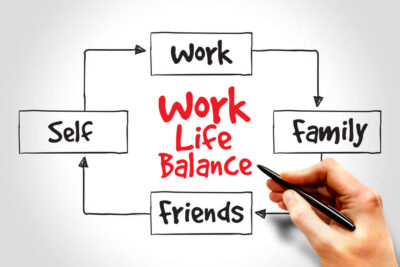Shifting present work life that old work-life balance terms mean the most
present work life that old work-life balance terms mean the most.
It is in this dynamic, shifting present work life that old work-life balance terms mean the most. The more firms show flexible options in order to attract the best brains on your payroll and retain them, the more it takes to create working conditions from which workers can freely benefit today. As such flexibility alters the dynamics of conventional nine-to-five job opportunities, this implies new standards in balancing work around living.
Emerging Concept in Flexible Work
Flexible work arrangements have gained much popularity in the last couple of years, especially during the COVID-19 pandemic. People have realized that they want more freedom in controlling their personal and professional lives. The businesses are, therefore embracing remote work, flexible hours, and hybrid models in which employees split their time between home and the office.
What does flexibility look like?
Workplace flexibility has many forms. Some companies allow employees to choose their working hours, provided they meet deadlines and complete their tasks. Others allow employees to work from anywhere: from home, remote, etc. Hybrid models, where employees spend part of the week in the office and the rest working remotely, are also becoming common.
Advantages of Flexible Work to Employees
Flexible work arrangements can greatly improve the work-life balance of employees. They spend more time with family, pursue hobbies, or attend to personal responsibilities without feeling tied to a rigid schedule. It reduces commuting time and stress, so employees have more energy for work. In addition, research has shown that the control employees have over their schedules is often associated with more motivation and job satisfaction.
Advantages for the Company
It attracts and retains the best human capital for a company. As job applicants today, this generation is so keen on having a work-life balance in choosing a company as an employer. It forms one of the competitive edges of companies that have flexible options. Happy employees are productive while productive workers are engaged thereby helping the organization. This also curbs absenteeism and the health of an employee will improve hence, saving health costs to employers.
Challenges of Flexible Work
Even though flexibility is its reward, it presents some challenges. If proper communication and technology are not utilized, it is difficult to manage a remote or hybrid team. Companies have to be ready to invest in the tools that facilitate collaboration with employees through video conferencing and project management software. Some employees are unable to separate work and personal life when working from home. Employers should encourage boundaries and offer access to mental health and wellness resources.
Creating a Flexible Culture of Work
A successful flexible work culture is more than the opportunity to telecommute or an adjustable schedule. An organization needs to build on trust and results with an outcome-based, not time-based, or micromanaging approach to how people spend their time. This new model requires leadership and education by and for the team members themselves to be successful.

The Future of Work-Life Balance
While there is no doubt that increased flexibility is the new culture, it is also easy to see that the concept of a traditional workplace seems to be changing. Now, employees are demanding personal and professional life balance while companies that embrace this practice will surely prosper. To create a more satisfied and productive workforce and meet the modern diverse talent pool, firms should prioritize flexibility.
Conclusion
Flexible work is not a perk for the employee; rather, it is a way of changing the work-life relationship. Companies and employers are slowly trying to make the shift in changing employees’ expectations, which gradually leads to happy employees, good business outcomes, and even sustainable work culture over time. Be it virtual, flexible hours, or hybrid models, embracing that flexibility is a win for the employee as well as for the employer.
~ By Shraddha Chaurasia, IMS Ghaziabad

